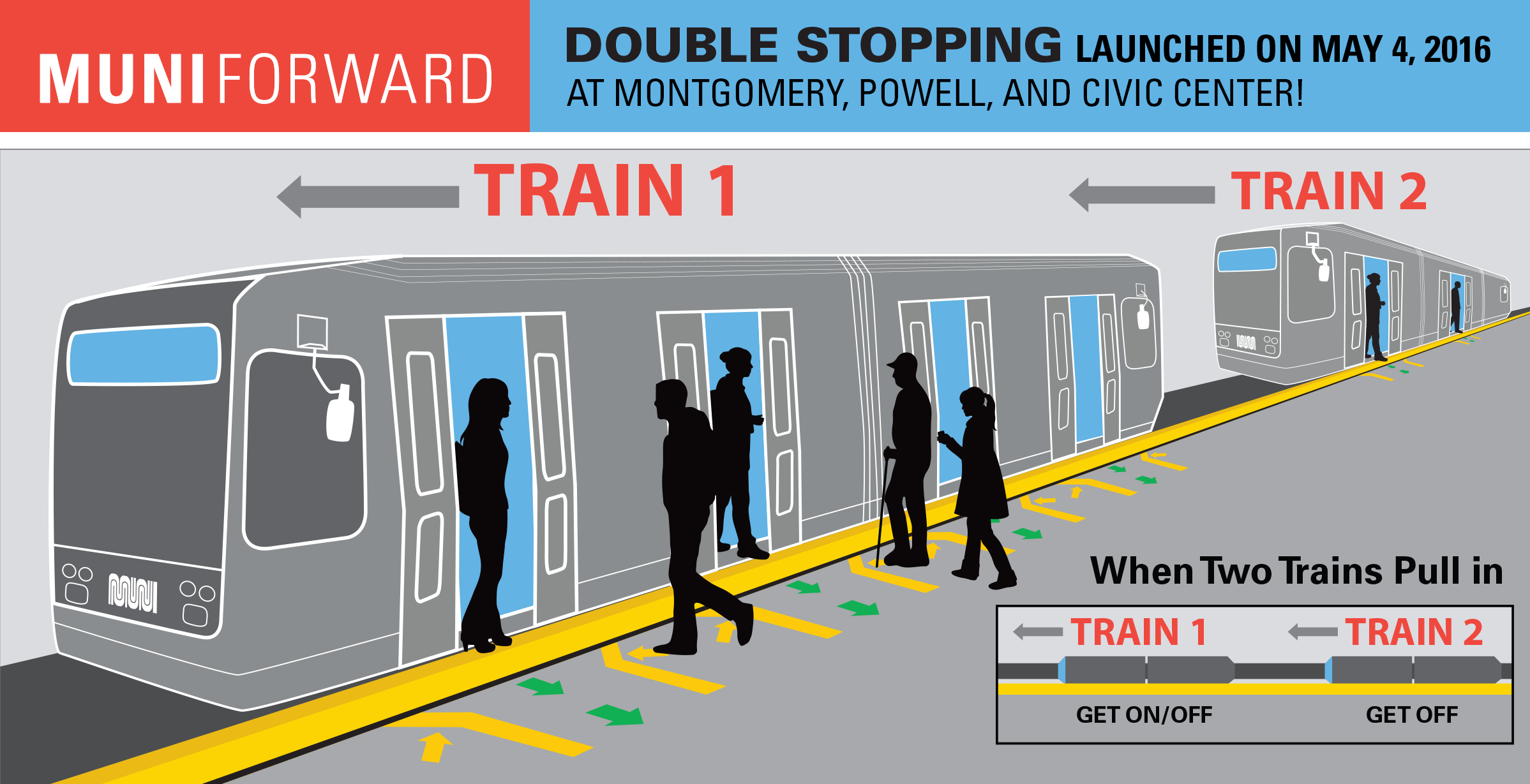As Muni Metro riders may have noticed, last week we launched double stopping to let people exit trains faster at three of our busiest downtown subway stations.
That’s good news for those who commute in the morning rush hour to Montgomery, Powell and Civic Center stations. When the inbound subway gets full, and two trains arrive at a platform at the same time, the second train can now open its doors to let people off. When the front train leaves, the rear train will pull forward and stop a second time to let people on.
The most important thing for riders to remember is to continue to board trains at the front of the platform, not the rear. All trains will still stop at the front of the station after they unload.

Double stopping is only used at the three busiest stations where the platforms are long enough for two trains to fit. And it’s primarily used for inbound trains during the morning rush hour, since that’s when the concentration of riders exiting trains is highest. It’s also when trains are most likely to back up as they approach the train turnaround at Embarcadero Station.
The idea behind double stopping is to help customers get where they’re going faster. Riders no longer have to wait to exit their train when it’s stopped at a platform.
Sounds pretty neat, right? Now, you might wonder why it wasn’t done sooner.
The answer requires a bit of technical jargon, so bear with us. It has to do with the way our Advanced Train Control System (ATCS), which automatically manages the movement of trains in the subway, syncs up with the platform sign announcement system. This coordination is crucial to make sure the correct trains are announced in the subway.
Muni staff tested double stopping with the ATCS about a year ago, but the platform announcement software had glitches which required more than a half a million lines of code to be individually reviewed by Thales Group, the company which we’ve contracted with to maintain the system.
After conducting consistently successful tests this month, we’re happy to finally say that double stopping is in effect.